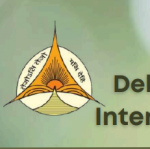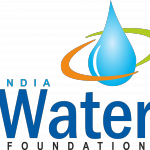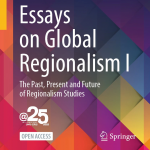UNU-CRIS contribution to Capacity Development and Education Programme

UNU-CRIS experts Tamara Avellán (as coordinator) and Nidhi Nagabhatla (as guest professor) contributed to the University of Europe’s Master's in Business Administration degree in Sustainable Water Management. This MBA specialization aims to attract graduates of economic subjects, particularly business administration and industrial engineering, looking to specialise in the sustainable water development sector. The second semester focused on the Fundamentals in Sustainability and Responsibility (which Tamara Avellán is coordinating as a freelance lecturer at the University of Europe), and the third one on Resource Competition and Allocation. The title of the presentation for Nidhi Nagabhatla was ‘Multilateral Institutions in the Development of Environmental Policies ‘ and the talk was delivered on April 15.
The overall aim of the course is to develop autonomous critical thinking in the use of updated technologies for soil and water management. Participants learn if, when, and how to apply the most advanced engineering best practices to address soil erosion and its impact on water. In a three-day block seminar on-site in Berlin, Dr. Avellán managed to bring together high-quality lecturers across the globe from the United Nations, global research entities and leading European universities to give a broad technical understanding of the water cycle and to evaluate water-related risks from both social and economic perspectives.
Nidhi Nagabhatla’s lecture focused on the origins of environmental awareness, beginning with the publication of the Meadows Report in 1972 by the Club of Rome, followed by the emergence of the concept of sustainable development and the Brundtland Report in 1987. It also covers the Rio Declaration and Agenda 21 from 1992, as well as the Millennium Development Goals (MDGs), their origin, context, and global dissemination. The interdisciplinary importance of water is emphasized, particularly its connections with the economy, society, agriculture, access to water, and food security. The course highlighted the evolution of international cooperation policies—from government-to-government models to government-to-people approaches—and examines the geopolitical impacts of water-related crises. Finally, it explored climate change, water-related challenges, the emergence and diffusion of sustainable and responsible development, Earth’s carrying capacity, the water footprint and other environmental indicators, as well as the role of environmental education and the Rome Charter of 2016.




